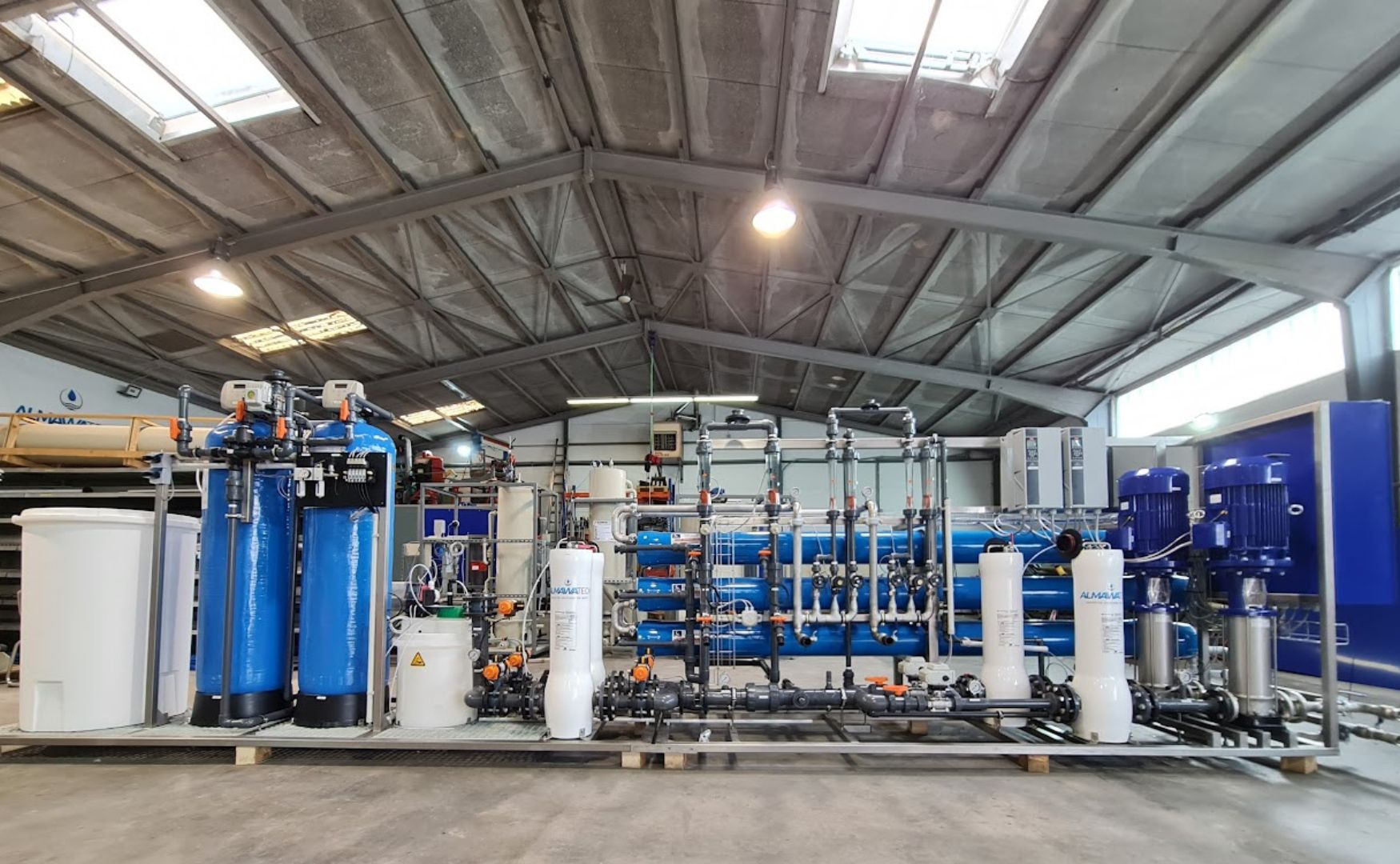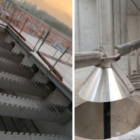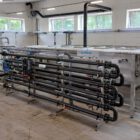Hydrophilicity describes the property of a substance to attract water or to dissolve in water. Hydrophilic molecules have polar groups, such as hydroxyl (-OH), amine (-NH₂) or carboxyl groups (-COOH), which can form hydrogen bonds with water molecules. This property distinguishes them from hydrophobic molecules, which repel water and dissolve in non-polar solvents instead.
Technical background
Hydrophilicity is crucial in water treatment, as many filter and membrane systems are based on this property. Hydrophilic materials such as cellulose acetate or polyvinyl alcohol are often used in membranes as they have a high wettability and promote water flow. In adsorption processes, hydrophilic surfaces help to effectively bind dissolved polar substances.
Applications in practice
Membrane filtration
Hydrophilic membranes are particularly effective in ultrafiltration and nanofiltration systems. They offer high permeability and a lower susceptibility to fouling by organic substances, as they promote a natural rejection of hydrophobic particles.Chemical treatment
In industrial wastewater treatment plants, hydrophilic chemicals are used to bind and separate organic substances and pollutants in the water. Typical examples are hydrophilic flocculants, which efficiently remove dissolved solids.Coatings and filter materials
Hydrophilic coatings on filter materials improve water absorption and prevent the formation of hydrophobic barriers, which increases filtration efficiency.

Photo: Our ALMA OSMO reverse osmosis system with water softener and hydrophilic reverse osmosis membrane
Significance for water treatment
In industrial water treatment, hydrophilicity is crucial for maximizing the efficiency of processes such as adsorption, precipitation and membrane filtration. It influences the wettability of materials, the efficiency of contaminant removal and the prevention of fouling in membrane systems.
Summary and outlook
Hydrophilic properties are a key factor for many processes in industrial water and wastewater treatment. Through the targeted use of hydrophilic materials and chemicals, plants can operate more efficiently, while operating costs are reduced due to lower cleaning and maintenance costs.
For further information on our products, please feel free to contact us at any time!








